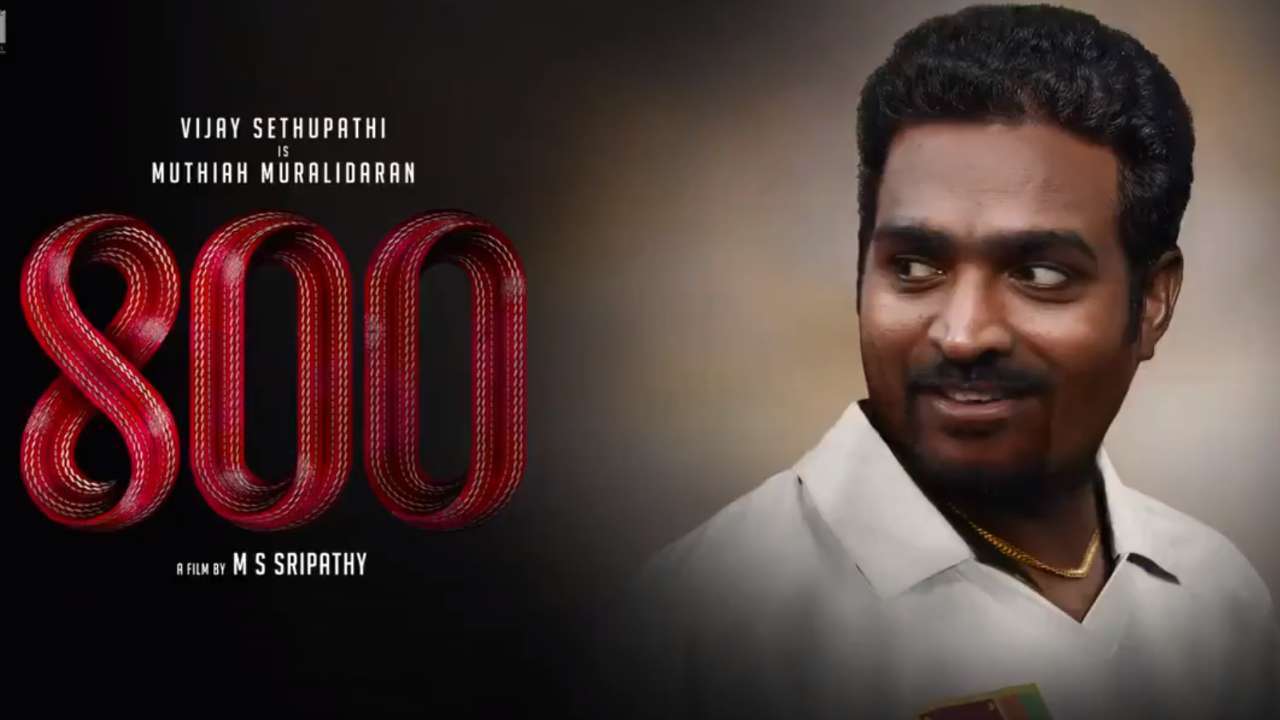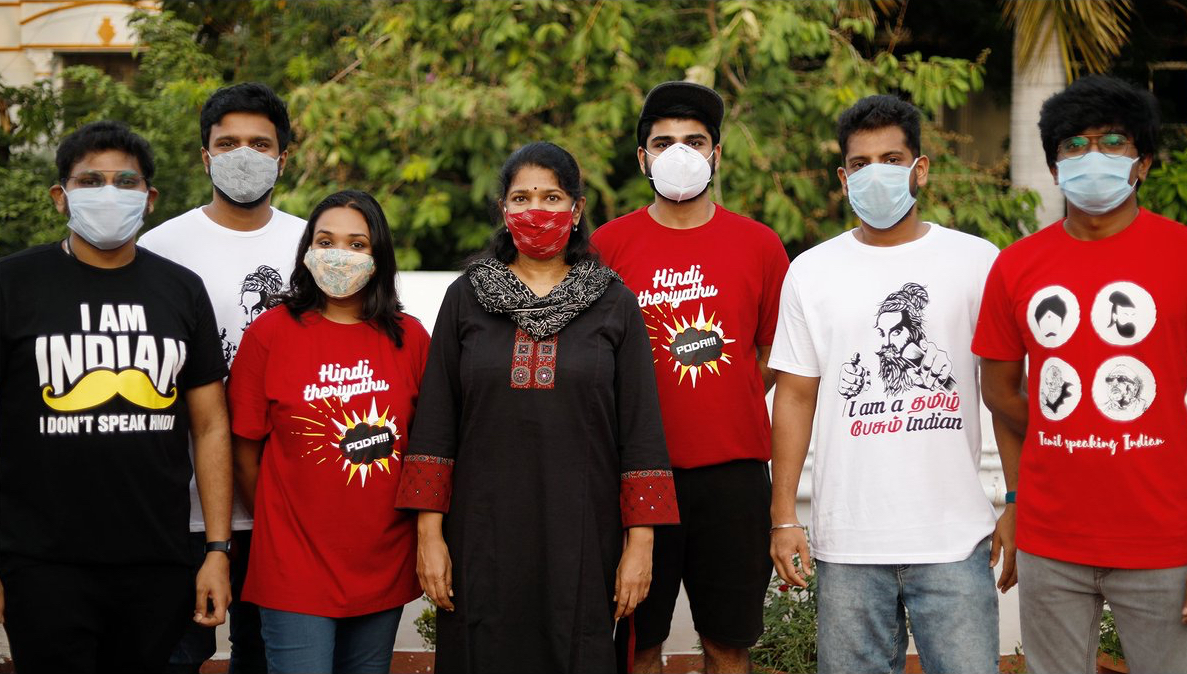
The recent controversy over actor Vijay Sethupathi’s announcement that he would be playing Muttiah Muralitharan in the Sri Lankan cricketer’s biopic escalated rapidly. No sooner did Sethupathi tweet that he was ‘honoured’ to be part of the film than a barrage of opposition began to pour in, with the actor seemingly forced into withdrawing from the project just days later. Though Muralitharan is a person who used to elicit the wrath of Eelam Tamils on account of his long-standing support for Sinhala-Budddhist extremists, the incident became a cause célèbre not just in these quarters, but also across Tamil Nadu. The episode throws the limelight upon the growing sway of Tamil nationalism in Tamil Nadu and the deep solidarity with the Eelam struggle, particularly amongst the youth of the state. Tamil nationalism, across the global Tamil community, has considerable strength. Whilst this bodes well for the ideology in the political sphere, the episode also gave rise to certain questions from the counter-opposition.
It is asked, what is wrong with making an apolitical film that charts the growth of Muralitharan’s cricketing career? The problem lies centrally with Muralitharan himself. Over the years, he has gone on to give ringing endorsements to those that led the massacre of the very people to whom the film is intended to be peddled. It should have sounded crass to the makers. It would have been impossible the portray the man without his politics.
The very announcement of this film betrays a profound misunderstanding of its intended Tamil audience. Over the years, Tamil films have had to adapt as its audience has grown mature, more politically aware and conscious of their collective rights as a people. Indeed, Vijay Sethupathi himself was praised for his roles in films tackling issues of social justice and LGBTQ rights in movies such as 'Super Deluxe’. If anything, the makers should have anticipated an even more vociferous fulmination.
But instead, as opposition raged through social media, the makers of the film released a sanctimonious statement that claimed:
‘This film does not make any political statement favouring any community. The film is intended to be an inspiration for the young generation to achieve their dreams irrespective of the difficulties they come across in their journey...Art is beyond boundaries...Artists belong to the world.’ `
This was a risible attempt at claiming the moral high ground and is flawed. A film about Murali that attempts to shy away from his ‘political statements’ infantilizes the Tamil population. We are not so starved of inspiration in our lives that we would resort to derive it from a person who sided with those that orchestrated our slaughter. Secondly, the idea that we Tamils would be willing to excuse Murali’s perfidy in favour of a three-hour entertainment is a grave insult to our amour propre. Finally, a ‘work of art’ that sets out to portray only Murali’s cricketing career and sweep all the undesirable aspects of his life (of which there are many) under the rug would be a grotesque travesty of art. Art is meant to instruct, entertain and edify, not to obscure, conceal or cover up.
Some also speak of the freedom of the artist to pick and choose the project they want to work on. Vijay Sethupathi has the right to take on any role he pleases. However, given the degree of adulation he enjoys amongst the Tamil people, especially given his reputation as ‘Makkal Selvan’, it would have been reasonable to expect him to have the foresight to decline this exercise in misrepresentation. Sadly, he did not.
![]()
Even if Sethupathi was ignorant of Murali’s now well-documented record as an apologist for genocide, the sheer amount of protest from prominent panjandrums in the Tamil political scene and from his very own Kollywood circle including stalwarts like Bharathiraja, Cheran, Seeman and Seenu Ramasamy should have shed light on the affront he was about to commit.
As opposition grew, Sethupathi still had the chance to clear all the doubts about his intentions by dropping the film and expressing regrets for his fault. Ultimately, he squandered it when he posted a letter from Muralitharan asking him to withdraw lest the movie affect his career in cinema. In other words, his apparent backing out from the film came not because he realised he made a blunder by accepting it and not because he saw that the protesters were in the right. Instead, it was because Muralitharan asked him to do so. He demonstrated that he respected the much-criticised cricketer more than he respected the Tamil audience. A fitting tribute to his millions of acolytes.
In a political sense, the episode was quite revealing of contemporary trends in Tamil Nadu. A few years ago, such a film might have made it to the silver screen with relatively little commotion. The few Tamil nationalist outfits that existed in the periphery of the political arena were disingenuous ones who would gladly jettison the ideology when they were offered bread crumbs such as seats in the state assembly by the major Dravidian parties. Indeed, controversial films made by companies such as Lyca Productions, accused of having close links to the Sri Lankan state continued to be screened, despite several significant protests.
The opposition to Vijay Sethupathi’s movie, however, represents not just a growth in maturity of Tamil audiences who have become more enlightened about social issues, but also the remarkable shift of Tamil nationalism from the fringes to the mainstream. More significantly, the online opposition was spearheaded largely by civilians without any kind of political direction. This fact points to the espousal by the people of the Tamil nationalist cause. Inevitably, it also presages the impending defenestration of the Dravidian parties from political preeminence in the state.
The AIADMK and DMK, who have throughout history posed themselves as advocates of the Eelam struggle to further their own political objectives, were caught short as opposition to the project snowballed across social media this last week. With a range of parties, including opposition rooted in genuine Tamil nationalist sentiment, expressed outrage, the establishment was left stumped. Indeed, the episode comes as in recent weeks, parties such as the DMK attempted to showcase their Tamil nationalist credentials. Just a few weeks ago, Kanimozhi, DMK MP and daughter of Karunanidhi, highlighted an incident she faced in the Chennai airport where security staff questioned her Indian credentials when she said she didn’t speak Hindi. The DMK also tried to flaunt an inclination for Tamil nationalism when the ‘Hindi Theriyathu Poda’ movement became popular. However, throughout the Vijay Sethupathi episode, the DMK has been noticeably mute. Was that maybe because Kalanithi Maran, a member of the Karunanithi family, has employed Murali as the bowling coach for his IPL franchise SunRisers Hyderabad? The DMK’s hypocrisy has become all too clear with the latest protests and it can no longer try to continue using the Tamil nationalist cause to serve its own narrow political ends.

The growth of parties such as the Naam Tamilar Katchi (NTK, We Tamils Party), headed by Senthamizhan Seeman and squarely opposed to the Dravidian parties, is one such movement that has grown astonishingly popular in the state, not least amongst the youth. The rising traction of the party is one of the chief reasons for the growing currency of the Tamil nationalist ideology in the state and caused serious annoyance to the establishment.
With the 2021 assembly elections drawing closer, incidents such as the recent one involving Muralitharan and Vijay Sethupathi, as appalling as they are, give fresh impetus to the Tamil nationalist cause and facilitate its political rise. Even if the parties such as the NTK do not come to power in the near future, the growing Tamil nationalist ideology will continue to define political discourse in Tamil Nadu for a long time to come. Such a development is welcome not just because it helps towards wresting the state from the grip of venal and ideologically vacuous Dravidian parties, but also thwarts the growth of the BJP. Even more encouragingly, such controversies give opportunities for the youth in Tamil Nadu to educate themselves of the plight and politics of their brethren in Eelam.
As the filmmakers behind the Muralitharan project discovered Tamil nationalism continues to have a stronghold across Tamil homelands. And it is growing stronger.
We need your support
Sri Lanka is one of the most dangerous places in the world to be a journalist. Tamil journalists are particularly at threat, with at least 41 media workers known to have been killed by the Sri Lankan state or its paramilitaries during and after the armed conflict.
Despite the risks, our team on the ground remain committed to providing detailed and accurate reporting of developments in the Tamil homeland, across the island and around the world, as well as providing expert analysis and insight from the Tamil point of view
We need your support in keeping our journalism going. Support our work today.
For more ways to donate visit https://donate.tamilguardian.com.

